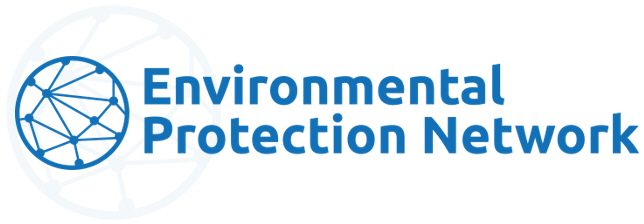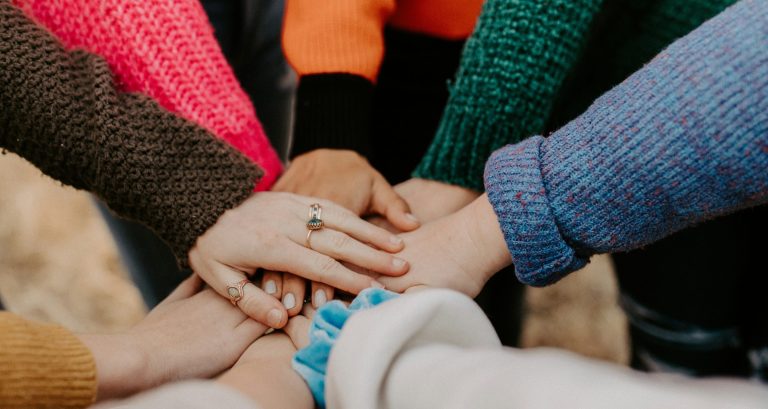Before we break for Thanksgiving, we want to acknowledge the resilience you’ve shown through challenging times. I hope this season brings a bit of lightness and renewal, and reminds you that brighter days are ahead. And as always, we’re here to support you with the guidance, care, and resources you may need along the way, including:
Court of Federal Claims (COFC) Clinic:
1. COFC Clinic
Recent Supreme Court guidance has shifted the landscape for grant termination disputes, identifying them as contract matters more appropriately litigated in the U.S. Court of Federal Claims (COFC). If your organization has had a grant terminated by the Federal government, it’s critical to begin building a thorough legal record grounded in contract law. This includes (but is not limited to) documenting the terms of and compliance with your agreement, financial transactions (e.g., drawdowns and invoices), and all relevant communications with the agency—especially those created contemporaneously (including screenshots). L4GG and EPN are currently preparing for a COFC clinic launch, with training happening TODAY, November 25th, for pro bono attorneys interested in providing free legal assistance for grantees considering bringing a claim. If you are interested in pursuing the option of bringing suit to recover monetary damages in COFC, please complete our COFC Clinic intake form (scroll down) at your earliest convenience. And if you are interested in becoming a pro bono volunteer for the COFC Clinic, please fill out the volunteer form on this page (scroll down).
Webinars/Office Hours:
2. EPN and L4GG Reminders
– Please sign up here to register for our upcoming grants management/safeguarding federal funding calls, and please note that the session planned for TOMORROW, November 26, has been cancelled due to the holiday. Our next webinar is scheduled for December 10, 2025. We will also be adding our ongoing webinars and office hours to the calendar throughout 2026.
– L4GG is supporting DOE grantees facing terminations. If you have received a termination letter, complete L4GG’s Intake Form and register for the DOE Alumni Network’s Bi-weekly Grantee Assistance Webinars. The DOE Alumni Network’s bi-weekly meetings do not conflict with the EPN webinars, ensuring that participants may attend both if needed.
– November 12th Webinar Summary: Our last webinar provided litigation updates and a review of legal options for grantees. Remember: Do NOT close out unless you are ready to stop fighting for this funding! If you are reaching your 120-day close out period or have concerns about your organization’s specific situation, please contact L4GG at FPC@L4GG.org for additional guidance.
Litigation Update:
3. Section 138 Appeal
The appeal continues in the District of Columbia Circuit Court of Appeals. Now that the shutdown has ended, the government will have 30 days to file their reply brief. As the shutdown ended on November 15, the government’s brief will be due on December 15.
Opportunity to Support Native Alaska Tribes:
4. GoFundMe and Letter to FEMA
In October 2025, the Native Villages of Kipnuk and Kwigillingok were devastated by Typhoon Halong—in total, 1,500 people were displaced, and 700 homes were completely destroyed by the historic flooding. One Native leader, Rayna Paul (the Environmental Coordinator for the Kipnuk Tribe), has started a GoFundMe to help rebuild the village. Many of you know Rayna, who has been an active advocate for her community’s terminated Community Change Grant. If you feel inclined, please consider donating. In addition, L4GG has put together a comment letter to FEMA that both disputes the decision to rebuild Kipnuk and Kwigillingok homes in the same location that was recently devastated by the flood and asks that FEMA extend the current comment period of 15 days. To receive a copy of the letter and sign on, please reach out to larissa@l4gg.org.
Funding Opportunities:
5. EPA FY26 Brownfield Grants
EPA is offering FY26 brownfield grant programs to support communities in assessing, planning, and revitalizing brownfield sites:
-
Learn more and apply to: Assessment Coalition Grants – Designed for one “lead” eligible entity to partner with 2–4 eligible entities that do not have the capacity to apply for and manage their own EPA cooperative agreement.
-
Learn more and apply to: Community-wide Assessment Grants – Funds a single eligible entity to carry out similar assessment and planning activities without the coalition structure.
-
Learn more and apply to: Multipurpose Grants – Supports a broader range of activities, including assessment and cleanup. Applicants may request up to $1,000,000 to address hazardous substances and/or petroleum contamination at one or more brownfield sites.
All three grant programs support critical activities such as developing inventories of brownfield sites, prioritizing sites, conducting community involvement activities, performing site assessments, developing site-specific cleanup plans, planning, and preparing reuse plans. These grants help communities safely address environmental contamination, engage residents in decision-making, and promote redevelopment of underutilized properties. The deadline to apply for each is January 28, 2026.
6. Climate Smart Communities Initiative (CSCI) Grants
CSCI is offering grants to support small and midsize U.S. communities at any stage of their climate resilience planning. Each award provides $75,000–$115,000, along with training and technical assistance, to advance activities such as risk assessments, community engagement, project prioritization, and early implementation over a twelve-month period.
To be eligible, communities must be facing significant climate-related challenges—environmental, socioeconomic, or both—and the application must be submitted through a partnership of:
- a community-based organization,
- a local, regional, or Tribal government partner, and
-
a climate adaptation practitioner.
A key feature of CSCI is its Registry of Adaptation Practitioners, which helps connect communities with qualified experts. Communities seeking a practitioner can search the Registry, and practitioners not yet listed may apply to join.
CSCI is accepting applications through March 12, 2026, with awards expected to be announced in summer 2026. For full program details or to apply, visit climatesmartcommunity.
Workshops:
7. The Deep South Center for Environmental Justice’s (DSCEJ) Water Justice Training Institute
The DSCEJ Water Justice Training Institute (WJTI) is accepting applications for its next cohort, offering seven virtual workshops from February to May 2026 for community-based organizations (CBOs) in FL, GA, AL, MS, LA, TX, and AR. The program supports CBOs actively addressing flooding or water-quality issues, particularly those with limited prior technical assistance, and provides resources to strengthen advocacy efforts. Participating CBOs can send up to three participants, and each selected will receive a $30,000 stipend to support their initiatives. Participants will gain skills in:
- Flood and water-contamination mapping
- Using public flood maps
- Advocating for solutions and engaging decision-makers
- Creating community-centered water advocacy toolkits
The application deadline is Friday, December 12, 2025. Apply here.
8. Entre Familia Workshop – Creating and Managing Effective Partnerships
Organizations enter partnerships for many reasons including pooling resources, creating a steady source of clients, streamlining access to services for clients, and improving client outcomes. Intentional design and management are essential for partnerships to be successful. This workshop is for leaders of community-based non-profit organizations considering partnerships such as referral systems, co-location, and services integration. In this training, participants will:
- Explore common approaches to partnership for service delivery.
- Understand conditions for successful partnerships and potential pitfalls, while reflecting on their own partnership experiences.
- Articulate their organization’s value proposition as a partner.
- Evaluate their organization’s readiness to partner.
- Determine their organization’s expectations for future partners.
Register here, and join the workshop on Jan 22, 2026, from 1:00-3:00 PM Eastern.
Resources:
9. We Build Progress Data Center Resources
We Build Progress has released new resources to help state and local leaders navigate the rapid expansion of data centers driven by AI and crypto-currency mining. As federal oversight remains limited, communities are facing increased pressure on power grids, water supplies, land use, noise levels, and energy costs.
Their materials offer guidance on emerging policy responses and practical strategies for community-centered oversight. Resources include How States Are Approaching the Data Center Boom, a report outlining current state approaches to data center regulation, and a policy database that tracks local and state actions by location, category, and status. The database will be updated regularly.
10. American Water Works Association (AWWA): Cooling the Cloud: Water Utilities in a Data-Driven World
AWWA has released a white paper to help water utilities and communities plan for data centers entitled, Cooling the Cloud: Water Utilities in a Data-Driven World. The white paper provides a comprehensive overview and examples of how the increasing number of data centers affect water utilities and communities and how water utilities can prepare to help meet the demand for expanding artificial intelligence and digital services. The paper:
- Examines increased water demands and costs, infrastructure strain, and the need to assess alternative water supplies.
- Provides insights into helpful decision-making approaches for improving collaboration and planning, choosing technologies, developing policies, and considering regulations.
- Outlines eight planning priorities for utilities anticipating data center development, ranging from evaluating customer impacts to financial modeling.
For more information, read the white paper and view AWWA’s press release.
Updates on EPN’s Work:
Please take a moment to check out EPN’s Bimonthly Newsletter: EPN In Action: September-October 2025
Highlights:
– During September and October, EPN connected 63 unique volunteers to over 177 requests for technical assistance from frontline communities, nonprofit organizations, under-resourced government agencies, and others—in addition to hundreds of requests from federal grantees that were frozen out of their funds, terminated, or otherwise under attack.
– EPN hosted four webinars with close to 1,000 attendees combined to provide information and resources to grantees navigating federal funding, and sent updates and potential actions to hundreds of grantees.
– EPN also continued to support current EPA staff with resources and services, including a job board, helpful links and FAQs, and connections to EPA alumni for additional support.
– In October, EPN hosted a webinar in partnership with FedsForward to help participants translate their federal resumes to the private sector. EPN also partnered with PEER and Next Interior on a webinar discussing threats to environmental protection and public employees during the rise of authoritarianism.
National Policy Updates:
– EPN submitted comments to the Department of Energy in response to their recent Greenhouse Gas Emissions report on impacts to the U.S. climate, calling for either a retraction of the report or substantial revisions to the incomplete and misleading climate science.
– EPN submitted comments on FY2026 Science Advisory Board (SAB) nominations, which discussed important factors that EPA should consider in the selection of members to the SAB.
– EPN submitted comments on EPA’s proposed decision to approve registration for new uses of dicamba on dicamba-resistant crops, recommending that EPA deny the proposed registrations because they do not meet Federal Insecticide, Fungicide, and Rodenticide Act (FIFRA) requirements.
– EPN submitted formal comments to EPA about rescinding the 2009 Endangerment Finding and vehicle GHG standards, urging for retention of existing standards.
– EPN presented oral testimony outlining five key harms associated with EPA’s proposed repeal of the Greenhouse Gas Reporting Program.

